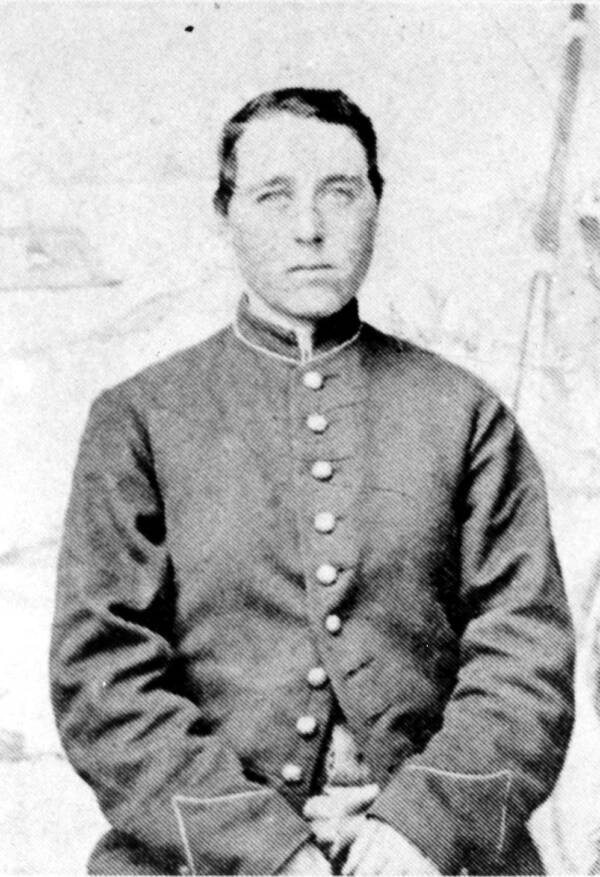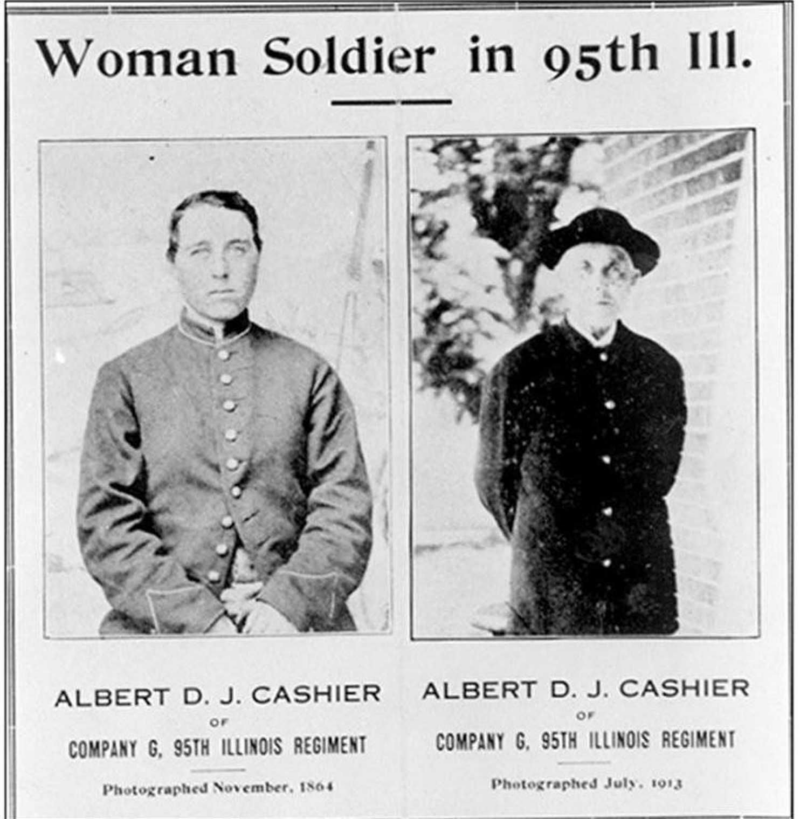Albert Cashier: The Trans Civil War Soldier

Abraham Lincoln Presidential Library and MuseumBorn a woman, Albert Cashier dressed as a man to fight in the Civil War and continued to live as a man once the war ended.
For most of his life, Albert Cashier guarded a secret: The valiant Civil War veteran had actually been born a woman named Jeannie Hodgers.
Born in Clogherhead, Ireland in 1843, Hodgers made her way to the United States as a stowaway. Upon arrival in the United States, she reinvented herself as Albert Cashier and spent several years passing as a man.
When the Civil War broke out in 1860, Cashier — like other men of his age — enlisted in the 95th Illinois Infantry of the Union Army. No one had guessed that Cashier was biologically a woman, especially since the Army’s physical examination entailed only a cursory look at a recruit’s hands and feet.
Cashier protected his identity during the conflict. He refused to share a tent with other soldiers and wore a high collar, obscuring his lack of an Adam’s apple. Though Cashier stood out as the shortest person in the regiment, he nevertheless could “do as much work as anyone in the Company.”
Indeed, Cashier proved himself on the battlefield. For three years, Cashier fought hard. Under the command of Ulysses S. Grant, Cashier battled in more than 40 conflicts. He even participated in the devastating Siege of Vicksburg.

Abraham Lincoln Presidential Library and MuseumAlbert Cashier was found out after he entered an institution with dementia in 1913.
And when the war ended, Cashier continued to live as a man. Perhaps he simply sought the economical advantage of being a man in the 19th century. But many historians believe that Cashier was actually transgender.
In any case, Cashier wasn’t able to guard his secret forever. In 1913, while suffering from dementia, Cashier moved himself into a mental hospital where doctors realized that their male patient was actually a woman.
The military promptly stripped Albert Cashier of his military pension and accused him of impersonating a soldier. Worst of all, however, officials at the hospital forced Cashier to wear skirts. The veteran allegedly found this restrictive and humiliating.
His skirts also proved fatal. Cashier tripped over his hem one day and broke his hip, triggering a long downward spiral that resulted in his death two years later.





